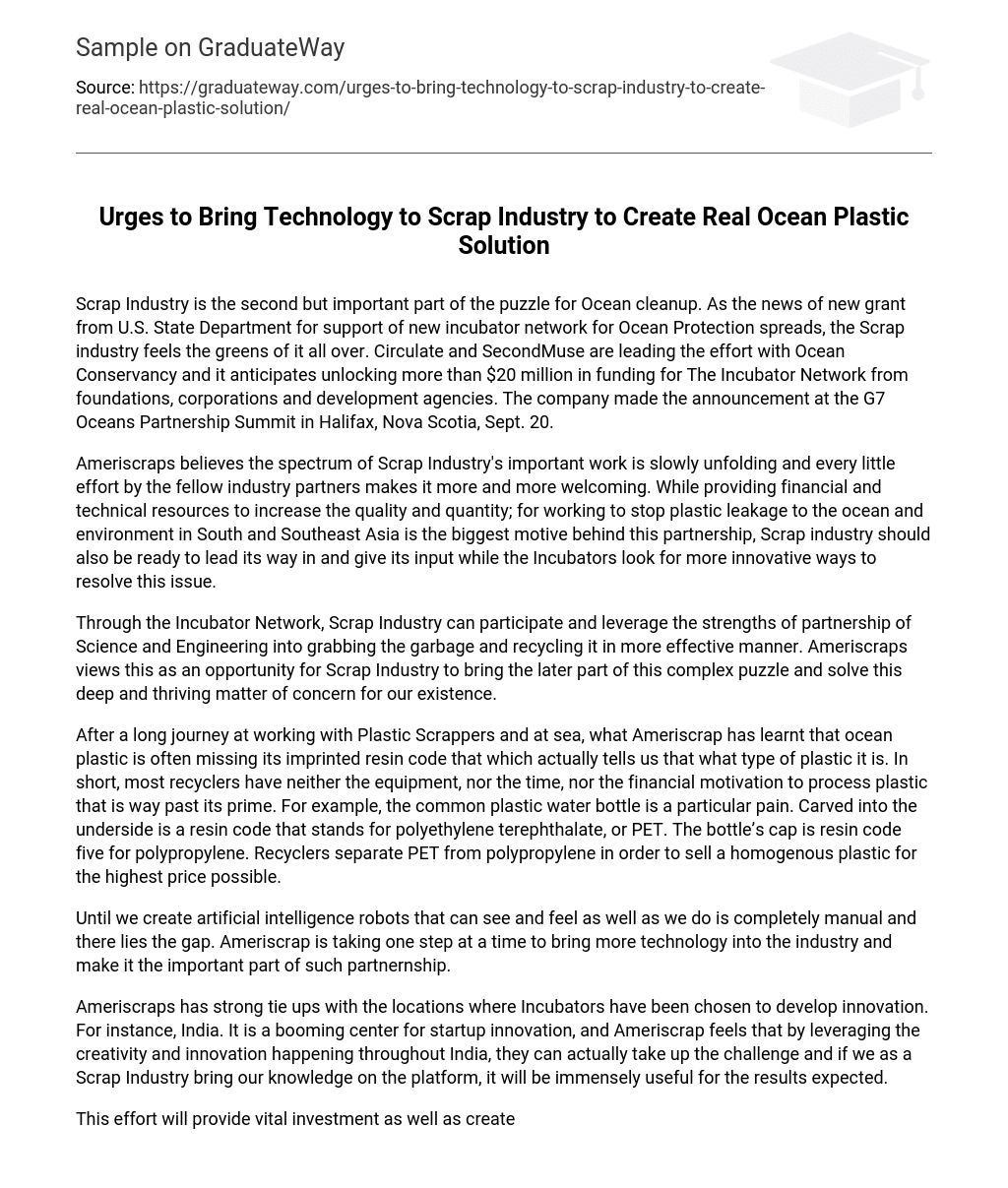Scrap Industry is the second but important part of the puzzle for Ocean cleanup. As the news of new grant from U.S. State Department for support of new incubator network for Ocean Protection spreads, the Scrap industry feels the greens of it all over. Circulate and SecondMuse are leading the effort with Ocean Conservancy and it anticipates unlocking more than $20 million in funding for The Incubator Network from foundations, corporations and development agencies. The company made the announcement at the G7 Oceans Partnership Summit in Halifax, Nova Scotia, Sept. 20.
Ameriscraps believes the spectrum of Scrap Industry’s important work is slowly unfolding and every little effort by the fellow industry partners makes it more and more welcoming. While providing financial and technical resources to increase the quality and quantity; for working to stop plastic leakage to the ocean and environment in South and Southeast Asia is the biggest motive behind this partnership, Scrap industry should also be ready to lead its way in and give its input while the Incubators look for more innovative ways to resolve this issue.
Through the Incubator Network, Scrap Industry can participate and leverage the strengths of partnership of Science and Engineering into grabbing the garbage and recycling it in more effective manner. Ameriscraps views this as an opportunity for Scrap Industry to bring the later part of this complex puzzle and solve this deep and thriving matter of concern for our existence.
After a long journey at working with Plastic Scrappers and at sea, what Ameriscrap has learnt that ocean plastic is often missing its imprinted resin code that which actually tells us that what type of plastic it is. In short, most recyclers have neither the equipment, nor the time, nor the financial motivation to process plastic that is way past its prime. For example, the common plastic water bottle is a particular pain. Carved into the underside is a resin code that stands for polyethylene terephthalate, or PET. The bottle’s cap is resin code five for polypropylene. Recyclers separate PET from polypropylene in order to sell a homogenous plastic for the highest price possible.
Until we create artificial intelligence robots that can see and feel as well as we do is completely manual and there lies the gap. Ameriscrap is taking one step at a time to bring more technology into the industry and make it the important part of such partnernship.
Ameriscraps has strong tie ups with the locations where Incubators have been chosen to develop innovation. For instance, India. It is a booming center for startup innovation, and Ameriscrap feels that by leveraging the creativity and innovation happening throughout India, they can actually take up the challenge and if we as a Scrap Industry bring our knowledge on the platform, it will be immensely useful for the results expected.
This effort will provide vital investment as well as create an ecosystem of organizations to foster collaboration and partnership in addressing the critical plastics waste recycling challenge that our world faces. Need is to work with local communities and organizations to develop recycling systems which empower communities, provide companies with reliable supplies of recycled material and accelerate the transition to a continuously moving economy.
More than half of the 8.8 million tons of plastic that flow into the ocean every year and analysis shows that a 45 percent reduction in plastic leakage is possible by improving waste management and recycling infrastructure. Ameriscraps is dedicated to create a deeper knowledge base and use of latest technology for the same.





